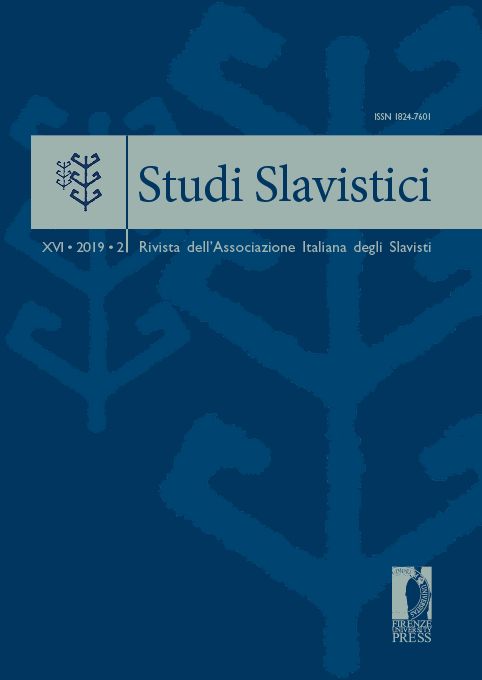Published 2020-01-20
Keywords
- Vita Constantini,
- Vita Methodii,
- Slavic Language Question,
- Alphabets for the Slavs,
- Heresy
- Paganism,
- Magism ...More
Abstract
The controversy of Constantine-Cyril the Philosopher against the hierarchs of the Latin Church in Venice (VC 16) contains, as is well known, a long quotation from the first epistle of St. Paul to the Corinthians (I Cor 14). In this passage scholars have especially emphasized the theme of the equality and dignity of all languages to praise God, and therefore the apologetic element in defence of the use of the Slavic language in the divine liturgy as an alternative to Greek and Latin. Taking into account the cyrillo-methodian conception of the linguistic sign and the attitude of the two missionaries towards the option between glossolalia and prophecy (the two “gifts” mentioned in I Cor 14), the article interprets the dispute by shifting the attention to the main theme of the introduction of the new Slavic alphabet, which is considered here more relevant than the question of language itself (some other works of the OCS literature are cited to illustrate this thesis, see e.g. the Treatise on the Letters by Hrabar, the Proglas to the Gospel, the Azbučna molitva). Against the alleged exclusivism of the Latin letters, an implicit accusation of paganism and magism emerges at the address of the Latin bishops, as the term “trijęzyčnici” (триѩꙁꙑчници) also seems to allude.


